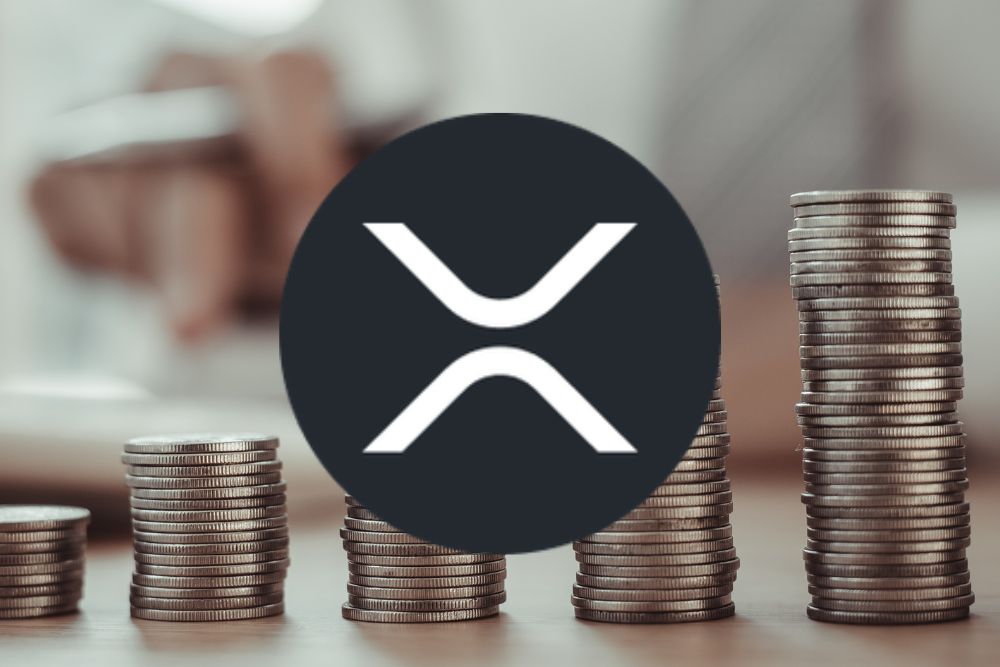
The bankruptcy estate of the now-defunct cryptocurrency exchange FTX has decided to withdraw its motion aimed at limiting creditor distributions to certain “potentially restricted foreign jurisdictions.” This decision follows substantial pushback from creditors and a wave of objections filed in bankruptcy court. FTX Trust Abandons Controversial Plan The FTX Recovery Trust, which filed a notice on Monday, had previously sought court approval to freeze payouts to creditors in 49 countries, including China, Saudi Arabia, Russia, and Ukraine, citing ambiguous or restrictive local regulations surrounding cryptocurrency. The trust’s motion, filed in early July, aimed to implement procedures that could have significantly affected the rights of creditors in these regions. However, numerous objections—over 70—were submitted shortly after the motion was made public, prompting the estate to reconsider its approach. Weiwei Ji, a creditor, emphasized that while the withdrawal represents a victory for affected creditors, it is crucial to remain vigilant until compensation is fully received. He warned that the implications of the motion extended beyond FTX creditors and could potentially undermine trust in the global cryptocurrency ecosystem. In related developments, the FTX estate’s planned repayment strategy has raised concerns about the actual value of distributions. Creditor representative Sunil Kavuri cautioned that creditors might receive far less than anticipated, particularly since repayments are being issued in fiat currency rather than cryptocurrencies. He pointed out that while the estate has outlined a 143% repayment plan in fiat terms, this does not adequately reflect the losses incurred when measured in cryptocurrencies. Meanwhile, amidst the backdrop of FTX’s legal struggles, co-founder Sam Bankman-Fried is seeking to overturn his fraud conviction and 25-year prison sentence. Sam Bankman-Fried Seeks To Overturn Conviction Bankman-Fried’s legal team argues that he was wrongfully convicted due to a rush to judgment influenced by the media, prosecutors, and notably, US District Judge Lewis Kaplan. In a brief submitted to the 2nd US Circuit Court of Appeals, Bankman-Fried’s lawyers contended that he was presumed guilty even before formal charges were filed. The appeal is being presented by Alexandra Shapiro, a criminal appeals lawyer known for her successes in similar cases. She is set to argue against the conduct of Judge Kaplan, who has been accused of bias against Bankman-Fried throughout the trial. The defense claims that Kaplan pressured jurors for a swift verdict by offering amenities and suggesting they could extend their deliberation hours. Moreover, they assert that the judge “ridiculed” Bankman-Fried’s testimony and undermined his defense. Bankman-Fried’s legal team is also challenging Kaplan’s decision to prevent him from informing the jury that FTX had sufficient assets to repay its customers , while the prosecution was allowed to assert that he had stolen billions, leading to the company’s downfall. Amidst these legal battles, there are reports that Bankman-Fried’s parents are exploring options for securing a presidential pardon , potentially from former President Donald Trump. Bankman-Fried’s team maintains that he did not intend to defraud customers, believing they would ultimately be repaid. Featured image from DALL-E, chart from TradingView.com
Bitcoinist
You can visit the page to read the article.
Source: Bitcoinist
Disclaimer: The opinion expressed here is not investment advice – it is provided for informational purposes only. It does not necessarily reflect the opinion of BitMaden. Every investment and all trading involves risk, so you should always perform your own research prior to making decisions. We do not recommend investing money you cannot afford to lose.
Bitcoin ETFs Record Outflows as Solana Attracts Inflows Amid Selective Market Shifts

Bitcoin and Ethereum spot ETFs recorded significant net outflows of $578 million and $219 million respectively on November 4, 2025, marking continued withdrawals for major cryptocurrencies. In contrast, Solana ETFs Bitcoinist

India Deep Tech: NVIDIA & Qualcomm Unleash Monumental Momentum for Startups
BitcoinWorld India Deep Tech: NVIDIA & Qualcomm Unleash Monumental Momentum for Startups The global technology landscape is constantly evolving, and for those closely watching the pulse of innovation, especially within the cryptocurrency and blockchain space, the foundations of future tech are paramount. A truly transformative shift is underway in India, poised to reshape the global deep tech arena. Major players like NVIDIA and Qualcomm Ventures are now joining a powerful coalition of U.S. and Indian venture capital firms, collectively committing over $1 billion to fuel the next generation of India deep tech startups. This monumental backing signifies a pivotal moment for a nation rapidly becoming a hotbed for groundbreaking innovation, promising ripple effects across various tech sectors, including those underpinning decentralized technologies. Unlocking the Future: Why India Deep Tech is Drawing Global Attention India’s startup ecosystem, home to over 180,000 startups and more than 120 unicorns, has long been recognized for its dynamism. While its early years often mirrored Western business models, a significant evolution has occurred. The focus has decisively shifted towards building ventures that tackle complex, infrastructure-scale problems. We’re talking about everything from launching satellites and electrifying transportation networks to designing cutting-edge semiconductors and developing advanced AI solutions. This strategic pivot is not accidental. The Indian government has actively sought to accelerate this shift, understanding the critical importance of technological sovereignty in an increasingly competitive global environment. Yet, capital for such ambitious undertakings has historically been scarce. Deep tech ventures, by their very nature, demand longer gestation periods and often carry higher perceived risks than traditional sectors, making them less appealing to conventional venture capital models. This is precisely where the new coalition steps in, aiming to bridge that crucial funding gap and propel India deep tech into a new era of growth. The Powerhouse Coalition: NVIDIA and Qualcomm Join the Fray The genesis of this impactful movement began in September with the launch of the India Deep Tech Alliance (IDTA), spearheaded by Silicon Valley- and India-based Celesta Capital. This alliance was formed with a clear mission: to bring together leading investors to support India’s burgeoning deep tech ecosystem. Initially, seven major U.S. and Indian investors committed to the cause, including Accel, Blume Ventures, Premji Invest, Gaja Capital, Ideaspring Capital, Tenacity Ventures, and Venture Catalysts. The recent additions of NVIDIA and Qualcomm Ventures mark a significant expansion of this already formidable group. Qualcomm Ventures has joined with six additional Indian venture firms—Activate AI, Chiratae Ventures, InfoEdge Ventures, Kalaari Capital, Singularity Holdings, and YourNest Venture Capital—bringing additional capital commitments totaling more than $850 million. This collective strength aims to provide not just funding but also crucial mentorship and network access to Indian deep tech startups over the next five to ten years. NVIDIA ‘s Strategic Role: Beyond Financial Commitments While NVIDIA has not made direct financial commitments to the alliance, its participation as a strategic technical advisor is arguably just as valuable, if not more so, for the development of India deep tech . The U.S. chipmaker, whose market value has surged amidst the global boom in AI and accelerated computing, brings unparalleled expertise to the table. NVIDIA will advise on best practices for integrating its AI and accelerated computing platforms, offering critical guidance to emerging startups. Furthermore, NVIDIA plans to offer technical talks and training through its Deep Learning Institute, fostering a new generation of skilled deep tech professionals. The company will also contribute to policy dialogues between industry and government, helping to advance India’s deep-tech capabilities at a systemic level. Vishal Dhupar, NVIDIA’s managing director for South Asia, emphasized that the company will share technical insights and scalable computing resources, stating that NVIDIA’s support is a significant validation of the ecosystem’s potential. Qualcomm ‘s Investment Focus: A Dual Approach to Deep Tech Unlike NVIDIA, Qualcomm is joining the alliance with a clear investment focus, adding substantial capital to the coalition’s commitments. The San Diego-based chipmaker has a long history of investing in India, with its first investment dating back to 2008. Notable early bets include Google Maps rival MapmyIndia, which successfully went public in late 2021, and Indian drone maker IdeaForge, publicly listed since 2023. These examples highlight Qualcomm’s proven track record in identifying and nurturing innovative Indian companies. However, Qualcomm ‘s participation extends beyond mere capital infusion. Rama Bethmangalkar, India managing director at Qualcomm Ventures, indicated that the firm plans to actively help deep tech startups connect with its extensive network of portfolio companies, partner ecosystems, and internal teams within Qualcomm. This holistic approach, combining financial backing with strategic support, is designed to give Indian deep tech ventures a significant edge, enabling them to navigate challenges and scale effectively. The Government’s Vision: Catalyzing Deep Tech Startups with ₹1 Trillion The timing of this private sector coalition aligns perfectly with the Indian government’s ambitious initiatives. India’s new ₹1 trillion (around $12 billion) Research, Development and Innovation (RDI) scheme, approved by the Indian cabinet earlier this year and rolled out by Prime Minister Narendra Modi, is a game-changer. This massive initiative is designed to fund projects in critical areas such such as energy security and transition, quantum computing, robotics, space tech, biotech, and artificial intelligence. The RDI scheme will provide support through long-term loans, equity infusions, and allocations to deep-tech funds of funds. The venture capital firms participating in the India Deep Tech Alliance plan to strategically leverage this government initiative, channeling resources and support to Indian-domiciled deep tech startups . This synergistic approach between public and private capital is expected to create a fertile ground for innovation, addressing the long-standing challenge of capital scarcity for deep tech ventures. Collaborative Ecosystem: The Path Forward for India Deep Tech Sriram Viswanathan, founding managing partner of Celesta Capital and a founding executive council member of the IDTA, describes the alliance as a ‘coalition of the willing,’ emphasizing its collaborative spirit. While participating investors continue to run their own programs, the alliance fosters a crucial environment for sharing knowledge, deal flow, and best practices. This collective intelligence is invaluable for navigating the complexities of deep tech investments. Although the exact individual capital contributions remain flexible, the collective commitment signifies a powerful endorsement of India’s deep tech potential. India’s deep-tech funding rose 78% year-over-year to $1.6 billion in 2024, according to a report by IT industry body Nasscom and global consulting firm Zinnov. While this growth is promising, it still trails behind developed markets like the U.S. The IDTA is poised not only to increase this figure but, more importantly, to draw global attention, attracting further investors and corporate venture funds to India’s dynamic startup ecosystem. The vision is clear: to cultivate a generation of ‘role models’ that will eventually lead to deeply science- and tech-oriented firms listed on India’s main exchanges within the next decade. Conclusion: A New Dawn for Indian Innovation The combined force of NVIDIA ‘s technical prowess, Qualcomm ‘s strategic investments, and the collaborative spirit of leading venture capital firms within the India Deep Tech Alliance, all harmonized with the Indian government’s ambitious RDI scheme, signals a new dawn for India deep tech . This unprecedented alignment of capital, expertise, and policy support is set to accelerate India’s journey towards becoming a global leader in frontier technologies. The ecosystem is ripe for a transformative period, promising a wave of innovation that will not only solve complex national challenges but also contribute significantly to the global technological landscape. Frequently Asked Questions (FAQs) Q1: What is the India Deep Tech Alliance (IDTA)? A1: The India Deep Tech Alliance (IDTA) is a coalition of U.S. and Indian investors, spearheaded by Celesta Capital , formed to bridge the capital gap for deep tech startups in India. It aims to invest capital, provide mentorship, and offer network access. Q2: What is NVIDIA’s role in the IDTA? A2: NVIDIA has joined the IDTA as a strategic technical advisor, without financial commitments. It will provide guidance on AI and accelerated computing platforms, offer technical training through the NVIDIA Deep Learning Institute , and contribute to policy dialogues to advance India’s deep-tech capabilities. Q3: How is Qualcomm Ventures participating in the alliance? A3: Qualcomm Ventures is participating with additional capital commitments, alongside several Indian venture firms. Beyond funding, Qualcomm plans to help startups connect with its portfolio companies, partner networks, and internal teams. Q4: What is the Indian government’s ₹1 trillion RDI scheme? A4: The ₹1 trillion (around $12 billion) Research, Development and Innovation (RDI) scheme, rolled out by Prime Minister Narendra Modi , is an initiative to fund projects in areas like energy, quantum computing, robotics, space tech, biotech, and AI through long-term loans, equity infusions, and allocations to deep-tech funds of funds. Q5: Which venture capital firms are part of the IDTA? A5: Initial members include Celesta Capital , Accel , Blume Ventures , Premji Invest , Gaja Capital , Ideaspring Capital , Tenacity Ventures , and Venture Catalysts . Recent additions with Qualcomm Ventures include Activate AI , Chiratae Ventures , InfoEdge Ventures , Kalaari Capital , Singularity Holdings , and YourNest Venture Capital . To learn more about the latest AI market trends, explore our article on key developments shaping AI models features. This post India Deep Tech: NVIDIA & Qualcomm Unleash Monumental Momentum for Startups first appeared on BitcoinWorld . Bitcoinist











